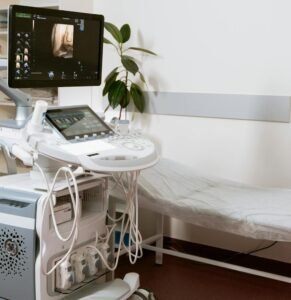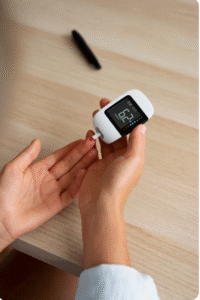A Digital Revolution in Healthcare
South Korea is leading a healthcare transformation through digital health innovation, with one of its most ambitious projects focused on digital health records. By merging technology, data science, and patient-centered design, Korea is creating a system where medical data can be accessed, shared, and used securely in real time.
This digital revolution is reshaping hospitals, empowering patients, and laying the foundation for a future where healthcare is personalized, efficient, and connected.
➤ What Are Digital Health Records?
Digital health records — or Electronic Health Records (EHR) — are digital versions of a patient’s complete medical history that can be securely stored and accessed by healthcare providers.
They include:
➤ Medical history, prescriptions, and previous treatments.
➤ Diagnostic results, imaging scans, and lab reports.
➤ Vaccination details and allergy records.
➤ Wellness data from smart devices and health apps.
In Korea, the vision goes beyond simple digitization. The aim is to create smart, AI-integrated health ecosystems where hospitals, clinics, pharmacies, and patients are all seamlessly connected through data.
Lifestyle insight: With EHRs, patients can visit any hospital and instantly share accurate, updated information — saving time, improving diagnosis, and preventing duplicate tests.
➤ Korea’s National Digital Health Strategy
The Korean government has launched an ambitious national initiative to unify and digitalize all medical data through platforms like My Healthway.
➤ The Ministry of Health and Welfare and KDCA (Korea Disease Control and Prevention Agency) are leading this project.
➤ My Healthway allows individuals to own and control their health data, giving them the right to share it with hospitals or insurance providers.
➤ It connects hospitals, pharmacies, labs, and wearable devices into a single secure system.
Lifestyle benefit: Through this system, patients will soon be able to access all their medical records, prescriptions, and test results in one app — simplifying healthcare and making it more transparent.
➤ AI and Big Data Powering the System
Artificial Intelligence and Big Data are at the heart of Korea’s healthcare innovation.
➤ AI algorithms analyze large-scale medical data to predict diseases and improve early diagnosis.
➤ Big Data platforms process health records to track national health trends and improve public health planning.
➤ Hospitals use machine learning to interpret X-rays, MRIs, and pathology results faster than ever.
Example: Samsung Medical Center uses AI-based software to analyze imaging data, helping doctors detect early signs of cancer and cardiovascular disease.
Lifestyle insight: The integration of AI makes Korean healthcare not only faster but smarter — turning raw data into meaningful health insights.
➤ Benefits for Patients and Healthcare Providers
The digital transformation brings major benefits to both patients and doctors.
For patients:
➤ Easy access to personal health records via mobile or web.
➤ Accurate diagnosis with complete medical histories available.
➤ Shorter hospital visits through digital registration and billing.
➤ Personalized treatment powered by AI data analysis.
For doctors and hospitals:
➤ Efficient data sharing between institutions for continuity of care.
➤ Reduced paperwork, saving time and resources.
➤ Better monitoring of chronic conditions through connected devices.
Lifestyle tip: Soon, data from wearable devices like smartwatches or glucose sensors will sync automatically with hospital systems, allowing real-time patient tracking.
➤ Prioritizing Data Privacy and Security
As Korea advances in digital health, privacy protection is treated as a top priority.
➤ Data is encrypted and stored on secure cloud servers.
➤ Only authorized personnel can access patient information.
➤ Patients must provide digital consent for data sharing.
➤ The Personal Information Protection Act (PIPA) enforces strict data management standards.
➤ Some hospitals are exploring blockchain technology for tamper-proof record storage.
Lifestyle insight: Korea’s approach ensures that while technology connects the system, privacy remains in the hands of the patient.
➤ Smart Hospitals: The Next Step in Digital Healthcare
Korea’s leading hospitals are already evolving into smart hospitals, using digital health records to enhance patient care.
➤ Asan Medical Center and Seoul National University Hospital use integrated cloud-based data systems to manage patients across departments.
➤ AI-driven assistants help with scheduling, monitoring, and communication.
➤ Smart sensors track vital signs and send data directly to medical teams.
Lifestyle benefit: These smart hospitals offer faster check-ins, accurate treatments, and smoother patient experiences — showing how digital health is transforming hospital care.
➤ The Growth of Telemedicine
Digital health records are also expanding the reach of telemedicine, allowing patients to consult doctors remotely.
➤ During the COVID-19 pandemic, Korea successfully piloted virtual consultations through connected health systems.
➤ Doctors can now access a patient’s entire health record during an online visit, ensuring continuity of care.
➤ Plans are underway to expand cross-border telehealth, enabling global patients to consult Korean specialists.
Lifestyle tip: With digital records, telemedicine becomes seamless — patients receive expert advice from home while doctors maintain full access to medical history and test results.
➤ Integrating Wearables and Health Apps
The next frontier in digital healthcare is the connection between personal devices and hospital systems.
➤ Fitness trackers and smartwatches automatically update medical profiles with vital data like sleep, heart rate, and exercise.
➤ Doctors can monitor patients remotely and adjust treatments in real time.
➤ AI-based health apps provide personalized nutrition and activity recommendations.
Lifestyle insight: This integration gives individuals greater control over their wellbeing — transforming healthcare from hospital-based treatment to daily, proactive prevention.
➤ Challenges and Ongoing Improvements
Despite its rapid progress, Korea’s digital health record system faces several challenges.
➤ Data compatibility: Hospitals use different software systems that must be unified.
➤ Public awareness: Some patients still prefer traditional paper records.
➤ Ethical and legal concerns: Proper regulation is needed for AI use in medical decisions.
➤ Digital literacy: Elderly and rural populations need education and support.
Lifestyle insight: The government continues to refine the system, focusing on inclusivity and education to ensure that everyone benefits from digital healthcare, regardless of age or background.
➤ Korea’s Global Leadership in Digital Health
Korea is now recognized as a global model for digital healthcare innovation.
➤ Korean hospitals collaborate with foreign institutions to share AI and EHR technology.
➤ Tech companies like Samsung, LG, and Kakao Health are exporting medical data systems abroad.
➤ The government hosts global digital health conferences to promote safe and ethical use of medical data.
Lifestyle tip: Korea’s success in merging healthcare and technology is inspiring other nations — turning its hospitals into global innovation hubs.













